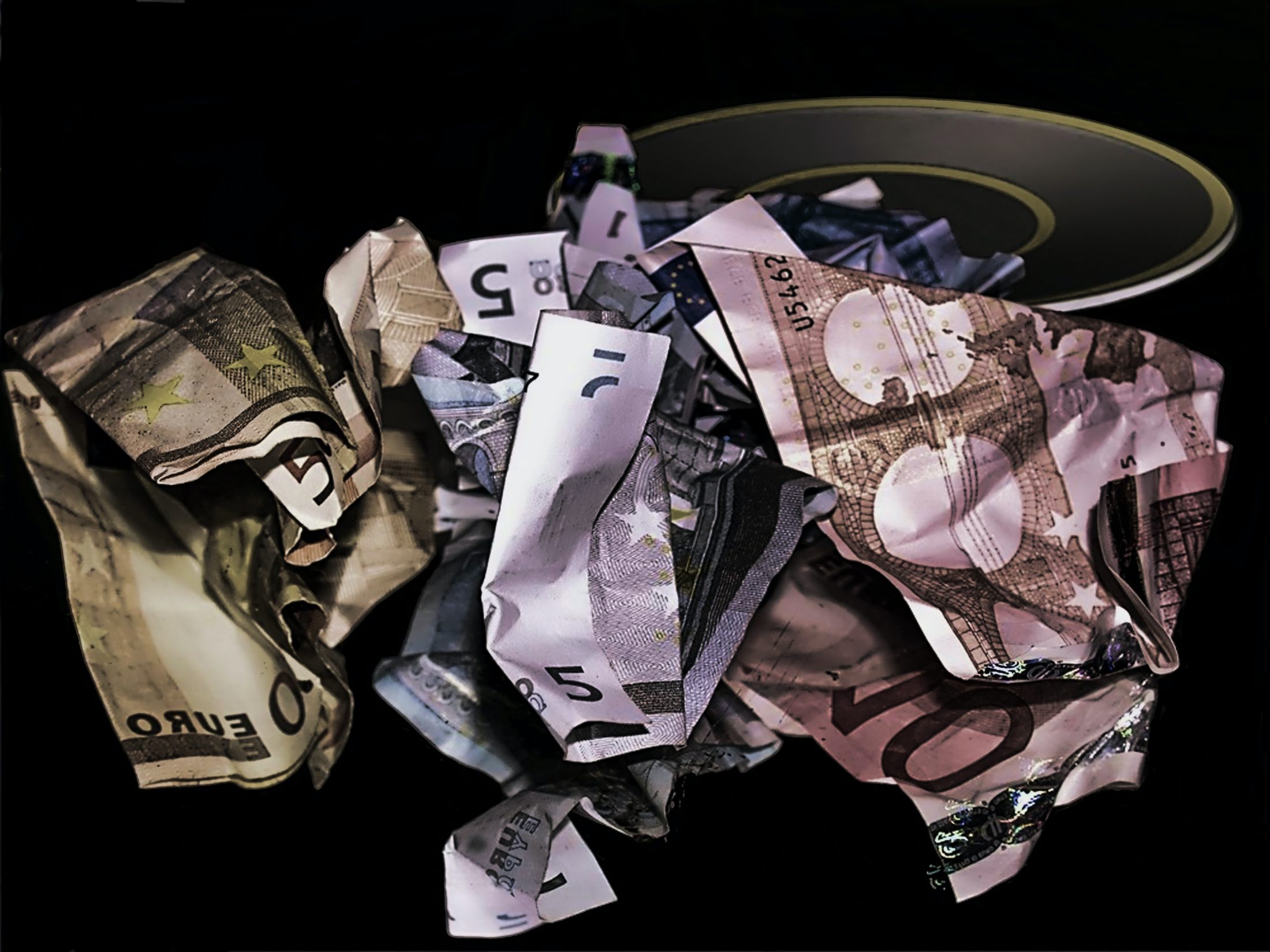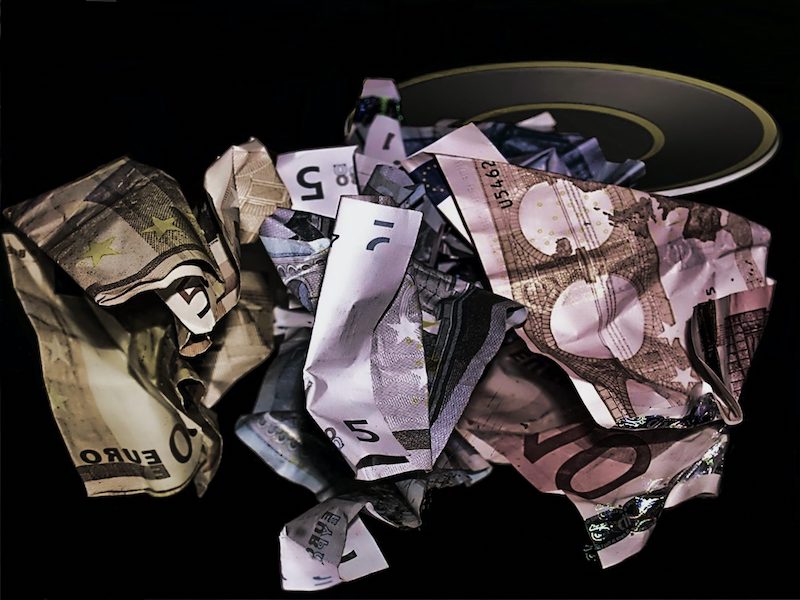The future of cash: a conversation with M&S’ Baron Anyangwe
If cash’s popularity has been declining slowly but steadily over the past decade, Covid-19 has sped things up.
In the wake of research showing SARS-CoV-2 can live on paper and plastic for up to 3 days, people have been ditching notes and coins in droves. MasterCard found contactless usage increased 40% worldwide between January and March 2020. And 72% of those they surveyed said they won’t be going back to cash post-pandemic for hygiene reasons.
Recently, we sat down with Baron Anyangwe, Head of Finance Channels at M&S, to discuss what the growing preference for cashless payments means for businesses and their consumers moving forward.
Here’s what we learned.
Digital payments are potentially transformational for businesses
“I think there are three main advantages for businesses when it comes to cashless payments,” says Anyangwe.
“First, going cashless speeds up transactions, so people go through the till quicker. That’s going to be especially helpful as we start slowly coming out of lockdown. The cap on the number of people you can have in stores due to social distancing rules is effectively a cap on the total number of sales you can make in a day.
“Secondly, depending on the way payment is made, I believe there’s less likelihood of fraud. This is particularly true if you don’t have a good way of detecting fraudulent cash loads. This is because, most of the time, credit should be instant when you make a cashless payment.
“Thirdly — this is where, I think, there’s most value — you can build a repository of data on your customers’ spending habits.”
Anyangwe’s third point is particularly compelling because transaction data can help businesses make their marketing messages more targeted, which helps boost sales.
“Digital payments let me know what type of chocolate you like… or whether you even like chocolate at all. This allows me to optimise your experience accordingly,” says Anyangwe. “But if you pay in cash, there’s no way I can link you to your transactions.”
Digital Payments for Company Spending
Digital payments are exceedingly useful for finance teams when it comes to company spending from an operational perspective too.
Paying for products and services digitally — and connecting them to a spend management platform like Soldo — can give you real time visibility into where your money is going and who is spending it. In comparison, using cash creates serious accountability and control issues, because cash is by nature impossible to track.
Accessibility matters
While going cashless has significant advantages, Anyangwe is quick to point out that it also has a dark side.
In a cashless society, there are losers, with the obvious ones being traditionally cash-based businesses like charities and nonprofits. The Poppy Appeal, Oxfam, NSPCC, and the Church of England, for instance, have all reported declines in donations. This is because people carry less cash on them or even leave their wallets at home.
But a sizable chunk of customers are falling through the cracks, too. According to the Financial Inclusion Commission, 1.5 million Brits do not have a bank account, which means they’re unable to pay other than in cash.
“As a business, we want to be accessible to a wide range of customers… And as exciting as a cashless society may be, we need to make sure we aren’t leaving people behind,” says Anyangwe.
Access to the traditional financial system isn’t necessarily the right solution. The Financial Inclusion Commission found that 50% of the unbanked don’t want a bank account. And at least 15% close or abandon their new accounts because their cost outweighs the benefit.
This, thinks Anyangwe, makes options all the more important.
“I think before we keep pushing for a cashless society, we need to address these problems. We need to make sure that if we were to take out cash completely, the unbanked, the homeless, the charities, and others who depend on cash have access to alternatives.”
Cashless doesn’t have to mean cash-free
As it happens, a number of countries around the world have already proven that you don’t need to ditch cash to go cashless.
In South Korea, shoppers can exchange their loose change for a prepaid card which doesn’t need to have a bank account attached to it.
Similarly, notes Anyangwe, “Africa is probably much further than Europe in terms of mobile transactions.
“Mobile phone technology is much more accessible than what we have here. Some areas struggle to have roads or electricity but people have three or more mobile phones. Initiatives like M-Pesa have made use of this highly accessible technology to enable people to transact electronically.”
These kinds of technologies also have business applications. Soldo’s prepaid cards, for instance, are allowing traditionally cash-reliant care homes to keep going now that ever more vendors are ditching cash to prevent the spread of Covid-19.
How will we pay in 2030?
UK Finance reckons that, by 2028, only 9% of transactions will be cash-based, while the rest will be cashless.
So how will this affect the business landscape?
“It’s funny,” says Anyangwe, “these questions always assume there’s going to be just one societal change while everything else will stay the same. That’s highly unlikely.”
This, continues Anyangwe, makes it unlikely we’ll be completely cashless.
“There’s a good chance there’ll be at least one major unexpected event in the next 10 years, whether that’s a war, a climate event, or something else. This will prevent some of the advances that we expect. So while we’ll be slightly closer to being cashless, physical notes and coins will still have a role to play.”
This, he thinks, is good news for both businesses and customers.
“The more options we have for those who currently struggle to go cashless, the better. If we only go down one route there will inevitably be certain transactions we can’t make. That’s not good for anyone.”
At Soldo, we’ve built a platform that helps you easily replace cash-based transactions with prepaid cards for better visibility and control over your spending.








